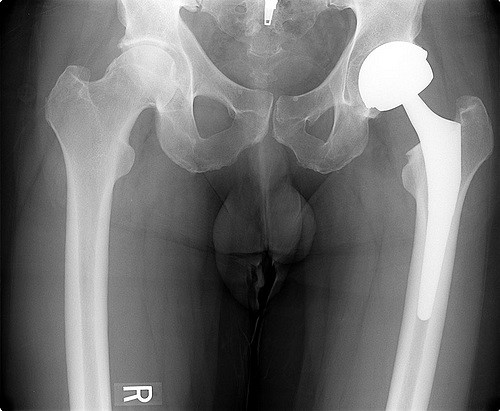What is the health service for?
The health debate in Australia has several shortcomings.
First, it focuses on managerialism without establishing the values that should underpin and drive a national health service. Fragmentation, inefficiency and waste are important issues, but do we want a well-managed and efficient system that lacks guiding values? What is the health service for?
Secondly, the debate reflects the interests of provider groups who reluctantly concede incremental reform but oppose necessary structural reform.
Thirdly, the debate is about funding the demand for health services through Medicare, when after forty years of Medicare we need to address the supply side – how health services are delivered.
It is hard to find any coherent set of principles that guide health policy in Australia. So much is ad hoc, short term and born out of political compromise, designed to placate vested interests.There is no ‘system’, only relatively unconnected parts. Some services are provided free, while others like dental receive little government support. Some services are covered by tax-funded insurance through Medicare, but at the same time there are large incentives for mainly high income people to opt out of sharing and into private insurance. Politicians talk of “universalism” and a “commitment to Medicare” while encouraging the development of a two-tier hospital system. Governments, particularly Coalition governments speak vaguely about the importance of markets, but only in a few areas of health care is there market competition. What about auctioning provider numbers by postcode? Labor politicians sing the praises of bulk-billing while supporting high co-payments for pharmaceuticals and maintaining the Medicare safety net which mainly advantages the wealthy. (See A Health Policy for Australia – reclaiming universal health care, Doggett 2007, p.10)
I believe that there are some key principles that should guide health policy design.A universal single public-payer system accessible to all. Poor and rich should have access to the same high quality health services. That does not require subsidising inefficient private health insurance companies. A single payer like Medicare or Veterans’ Affairs funds both public and private providers. A universal system does not also imply a ‘free’ system. (For me, universality and a single public-payer are fundamental. They must be the bedrock of a fair and efficient national health service. But the federal government doesn’t discuss universalism and a single public-payer. In fact, it is retreating from both. We are approaching a tilting point in health care, as we have passed in education in establishing a two-tier health system that the United States is trying desperately to undo.)
- Promotion of private and public health delivery to ensure efficiency and effectiveness particularly in hospital services.
- Services designed around patients’ needs and not historic provider interests.
- Fairness through universal taxpayer funding.
- Priority given to disease prevention and keeping people healthy.
- The community actively involved in setting priorities eg indigenous health and mental health.
- Efficiency so that we obtain the maximum benefit from our limited health dollars. Why is it that we have a caesarean section rate three times the WHO guideline and only 10% of normal births delivered by midwives, whereas in New Zealand it is 90%?
- Subsidiarity whereby health care is delivered by the most local health unit (e.g. primary care) subject to national policies, national funding and national standards. (Opcit p.11)
This is not to say that we should be unsympathetic to governments which have to make pragmatic decisions on the basis of perceived or actual public concerns and the self-interest of health providers. Governments can only build on what we have at the moment. But in health as in so many areas, we need some clear principles which provide guidance and discipline in the development of health care.
I suspect that there is widespread agreement particularly on the principles of universality and equity, but in a democracy the only acceptable way to establish and assert principles is serious and continuing community engagement. Political leadership is important in articulating and shaping principles, but in the end, it is the community’s values and principles that matter.
In Canada, a decade ago, the federal government established a Royal Commission to conduct a dialogue with citizens and to make recommendations to the government on an ideal health service for Canadians. In ‘Renewing the Foundations’ of Canadian health, the Commissioner, Dr Roy Romanow, proposed, "A Canadian Health Covenant that expresses Canadians’ collective vision for health care and that outlines the responsibilities and entitlements of individual citizens, health providers and governments in regard to the system. We need consensus on why the system exists, what it is intended to achieve and how its component parts should fit together. This is vital to restoring the public’s confidence in the system".’ (Statement by Romanow QC, Ottawa, November 28, 2002, p.4)
In referring to ‘consensus on why the system exists (and) what it is intended to achieve’, Romanow was in effect saying that Canadians needed to agree on the principles that should guide the design of the Canadian health system. His report underlined the wide support amongst Canadians for the principle of universalism.
The Australian government has not spelt out why the Australian health system exists and what it is intended to achieve. Principles must come before managerialism. Why spend more money when we are not clear what we want our health service to achieve? What is the health service for?
Assuming we can establish the values and principles that should guide policy design of our health service, the real task then only begins. For, policy is easy, implementation is hard.
Policy is easy, implementation is hard
Implementation is hard because serious redesign of health runs immediately into the power of vested interests. I personally witnessed this at the birth of Medicare in the 1970s when I was Head of the Department of Prime Minister and Cabinet. The self-interested opposition of the medical profession was appalling.
Government archives, both Commonwealth and State, are full of health reform proposals that have never been effectively implemented because of the power of these vested interests.
The exercise of power in health is reflected in many ways.
- Vested interests like the Australian Medical Association (AMA), Medicines Australia and the Private Health Insurance companies and their lobbying activities put union power in the shade.
- The public debate is invariably between the minister and vested interest groups, with the community excluded.
- Inertia of health bureaucracies that are inward looking and work very closely with provider interests.
- Health is complex and some ministers, particularly state ministers, are easily captured by their departments.
- Ministers will never publicly admit that we cannot have all that we want in health, so the system is always under pressure and in crisis mode which makes planning for long term change difficult.
- Many vested interests are congregated around hospitals and as a result we have very hospital-centric health care.
- States’ rights get in the way of the community’s rights.
It is the lack of political will to contest vested interests which is the major cause of failed reform. Australia is not unique. Just ask Hillary Clinton and witness the debacle in US health today. Let me illustrate also from the Canadian experience. In Ontario in 1996, the provincial government set up a Health Services Restructuring Commission to not only advise on restructure in health but also to implement the restructuring. Ministers recognised that they were too subject to pressure by vested interests in the health sector and that a more arms length and independent commission could achieve outcomes that eluded ministers. Ministers had shown that they were unwilling or unable to address necessary closure or rationalisation of hospital and clinical services. The Commission made significant progress and after a period handed back its powers to ministers. A key in the Commission’s success was public education so that the public could better understand and accept the necessary changes. The public had more confidence in officials on the Restructuring Commission than they had in ministers.
In light of the way power is exercised in the health sector, what can be done in implementation?
- The Minister should stand back from day to day issues and crisis management of health and focus on the longer-term redesign of health services, including population health and a whole-of-government approach that embraces the social determinants of health. The main cause of poor health is poverty. The Minister should, wherever possible, be prepared to devolve and delegate greater responsibility and decision making to professional and independent organizations and people (eg Medicare, PBAC) and let them explain and defend what they are doing on behalf of the Minister. The Minister should avoid the media loop in which vested interests dominate with their own agenda.
- The Minister should have a clear role in government in all decisions affecting health eg housing, jobs, transport, education. She is the Minister for Health – and not only health services.
- Re-shape the Commonwealth Department of Health and Ageing as a priority to enhance its economic expertise and ensure that it focuses on the community’s interests. Programs should be output rather than input focused as they are now around inputs of hospitals, pharmaceuticals and medical services. The department is not presently equipped to be the administrative driver of reform. Why has the introduction of an Australia-wide e-health system been so glacial?
- The government should elicit from the Australian community, as the Romonow Commission did in Canada, the principles that should drive health reform and establish thereby a constitution or covenant for health care.
- Establish a small, external, professional and independent Australian Health Commission to monitor and advise the minister on the implementation of its health principles and its health plan following decisions made in response to the Australian Health and Hospital Reform Commission Report and the National Preventative Health Task Force. The AHC should report twice a year to Parliament. An important role of this Commission would be public education to contest the views of vested interests and hopefully to persuade the community on the case for reform. A supportive community will make political decisions easier. The case for health reform must be won in the community.
- Establish a Joint Commonwealth State Health Commission in any state where the Commonwealth and that State can agree. The Commission would jointly fund and plan the delivery of health services in that state. Implementation would be relatively easy if there is the political will. (See ‘Breaking the Commonwealth/State Impasse in Health, Menadue, 2007). The Rudd Government has said that it will propose to the Australian people in a referendum that it will take over state hospitals unless the states improve their performance and cooperation. Given the history of incrementalism in health and the lack of political will at both federal and state levels to contest the vested interests congregated around state governments, I remain to be persuaded that this is a serious proposal. I hope I am wrong.
- Wind back the $6billion per annum taxpayer subsidy to private health insurance companies and pay the money directly to public and private hospitals.
- Expand the role of Treasury, Finance and Prime Minister & Cabinet in the health reform process. They can bring greater rigour, an ‘outsider’s view’ and a whole-of-government approach.
- There should be no more money without reform, e.g. the increased funding of state hospitals should be based on outputs and performance and conditional on significant governance and workforce reforms.
- The priority area for implementation and funding should be primary care with the rollout of 200 multi-disciplinary primary health care clinics across Australia. (See A New Approach to Primary Care for Australia, Doggett, June 2007).
- Clinicians, but not the AMA, must be heavily involved in the reform process.
- Urgently recruit and train good health managers.
The major issue in implementation is political will to break the paralysis that is cultivated by vested interests. Other issues are much easier to resolve. Good health policy and good health politics require the Commonwealth Government to skilfully and resolutely manage down the power of vested interests in favour of community interests.
In addition to political will, what is also lacking is a clear health strategy for structural change. There is a lot of activity and a lot of enquiries, but how does it all fit together within an overall framework. Reviews can inform governments but strategy based on community values must come from government leadership. And the two most important values or principles that should guide a health strategy are in my view universality and a single public-payer. And the most important driver of change must be primary care.
But none of this is possible unless there is political will.
The issues outlined in the above were discussed in two papers in the Medical Journal of Australia in September and October 2008.



